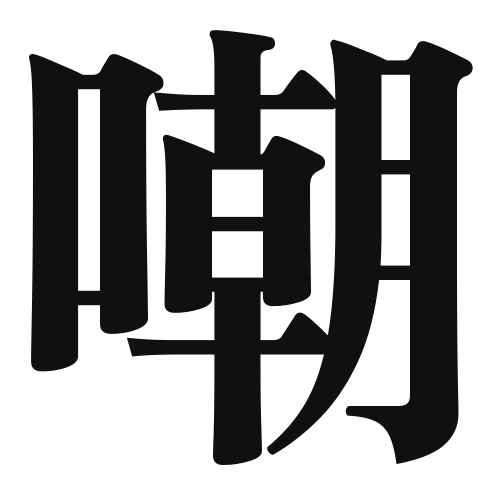1. Overview of Meaning
The kanji “嘲” (chou) means “to mock” or “to ridicule.” It conveys the idea of expressing contempt or derision towards someone or something, often through laughter or scornful remarks.
2. Formation and Radical
The kanji “嘲” is a phono-semantic compound (形声文字), which means it is formed by combining a phonetic component and a semantic component. The left part, “口” (kuchi), represents “mouth,” indicating speech or sound, while the right part, “超” (chou), contributes to the pronunciation and adds a sense of elevation or excess.
The radical of “嘲” is “口” (kuchi), which is commonly associated with words related to speaking or sounds.
3. Examples of Usage
Common words and phrases that include “嘲” are:
- 嘲笑 (ちょうしょう, choushou) – mockery, ridicule
- 嘲弄 (ちょうろう, chourou) – to mock or tease
Example sentence in daily conversation:
彼は私の失敗を嘲笑した。
(かれはわたしのしっぱいをちょうしょうした。)
He mocked my failure.
4. Synonyms and Antonyms
Similar kanji with related meanings include:
- 嘲笑 (ちょうしょう, choushou) – mockery, which emphasizes the act of laughing at someone.
- 侮辱 (ぶじょく, bujoku) – insult, which implies a more serious offense than mere mockery.
Antonyms include:
- 称賛 (しょうさん, shousan) – praise, which conveys admiration rather than ridicule.
5. Cultural and Historical Background
The kanji “嘲” has connections to Japanese culture, particularly in literature and theater, where mockery can be a form of social commentary. It is often used in the context of satire.
Proverbs and idiomatic expressions that include “嘲” are less common, but the concept of mockery is prevalent in various forms of storytelling and humor in Japan.
